1.1926-1935
Bishop Basil (Rodzianko) reminisces about Russian church life and people in the pre-war Serbia and provides a rare testimony of the restoration of communion within the Russian church emigration in 1935. Source: V. I. Kosic’s book Russkaia tserkov’ v Iugoslavii (20-40 gg. XX veka), Moscow, 2000. This translation is sponosored by St. John of Shanghai parish in Colchester, Sergei Baranov and Fund for Assistance to Russian Church Abroad.
[N.P.] Ruklitsky, P.S. Lopukhin and G. P. Grabbe had gathered themselves around Metropolitan Anthony and were continuing to think very much in the style and spirit of the Holy Synod of the St Petersburg period, forgetting that things had changed. These Synod folk stated boldly, ‘ We are the centre and everyone ought to listen to us’. And this was what happened. In 1926, Metropolitans Evlogy and Platon demonstratively left the session of the Bishops’ Council, claiming that they had no wish to be ruled by the bishops staying put in Sremski Karlovci who had had no idea of the real situation in America and Western Europe. It did look rather uncanonical: the Synod was composed of bishops without dioceses and with meaningless titles who lived in the monasteries of Fruska Gora and from there directed the ruling bishops of Europe and America. At the same time, the Serbs were helping the Russian Church by accepting her clergy into their parishes. There was full communion, no arguments and no schisms.After his monastic tonsure, Fr John (Maximovich) taught religious education at the Serbian high school in Velika Kikinda and then worked at the seminary in Bitola. Those who knew him well, told stories of his modesty, humility and simplicity. Once he was locked in the bathroom for the whole night. He remained perfectly calm the whole night; he didn’t shout or bang on the door. When they let him out , he greeted everyone with a radiant smile. They asked him, ‘What did you do there all night long?’ He replied, ‘I was praying for you, fools’.
Once upon a time, I met Fr John in church and he instructed me on the True Way. It was also he who introduced me to Vladyka Anthony at the 80th birthday celebrations of Empress Maria Feodorovna which was kept shortly before her death. There was a concert afterwards during which extracts from ‘A Life for the Tsar’ were performed. At that concert Fr John said to me, ‘Now this is the kind of concert which there is no harm at all to attend.’ I met Vladyka Anthony there too. Upon learning my name, he said that the Khrapovitskys and the Rodziankos were relatives and from now on he would regard me as his nephew. He then invited me to join him in his car and drove me to his house. I became a frequent visitor at Metropolitan Anthony’s home; Fr John had laid the foundation and Metropolitan Anthony built up my entire character.
The most important aspects of Metropolitan Anthony’s character were his theology and his inner orientation towards another world. That was his main and most important principle. He inclined towards a ‘Cappadocian theology’, a teaching which he regarded as peculiarly his own. This applied particularly to the teaching of St Basil the Great that human nature – the whole of humanity – has been completely fragmented as a result of the original sin. In this way, claimed Metropolitan Anthony, we have all become individuals, forsaking our vocation as persons and icons of the Holy Trinity.
There are people in this world best described by the English word ‘controversial’; these people inspire a variety of opinions. Without a doubt, P.S. Lopukhin was one such person. He was an extraordinarily interesting man who was neither a clergyman nor any kind of Church functionary. He was of an aristocratic stock, the family being related to Peter the Great himself whose first wife was Lopukhin. Peter Sergeyevich held his own counsel on dogmatic and Church matters and subscribed to his own particular worldview. At the same time, he was a kind, gracious man. I knew him well and was friendly with his daughters. On the other hand, he showed no mercy to anyone with whose opinions he disagreed. For this reason, he had many opponents, namely those who stayed away from the Society of St Seraphim and weren’t ‘our people’. His opponents called him and the people like him ‘our new Old Believers’, the Old believers of the immigration.
Both Metropolitan Anthony and Metropolitan Anastassy as well as P.S Lopukhin and his supporters used to say, ‘We are the Church Abroad – a part of the Russian Church which is ailing at the moment, but a time will come when we will come together at a general Council and settle all our differences’.
However, time passed and Hitler assumed power. Out of political expediency, Hitler built a large cathedral in Berlin, an act to which Vladyka Anastassy responded with a letter of thanks. He didn’t understand Hitler back then and could not predict his actions in the time to come. Later, as events unfolded, Vladyka Anastassy had to endure a lot of criticism because of this. I loved Vladyka very much and had great respect for him. He was a good and a deeply spiritual monk and his letter was completely understandable given the time. Metropolitan Sergius with his declaration of 1927 and Metropolitan Anastassy with his letter to Hitler were one and the same thing, although they found themselves on the opposite sides. Both were hierarchs of God who had been placed in an impossible situation and could not do anything else. It was politics. Politics and the Byzantine Empire, just like 1054 and the uniate question – that was politics too.
The Yugoslav clergy paid no attention to Vladyka Anastassy’s letter; they knew it was the only way.
Metropolitan Anastassy ordained me and I’ve remained grateful to him my whole life. Let’s recall our present Metropolitan Vitaly. He stated in one of his missives that the Russian Church was no more, having being supplanted by dressed -up Cheka officers. It was no longer the Church; everything in it was controlled by the KGB. He went so far in his denunciation that one of his priests sent an open letter of protest.
The Bishops’ Council was convened and everyone expected that there would be a schism between Metropolitan Vitaly and his supporters and the majority of the episcopate who did not share his views. In the end, Metropolitan Vitaly was left in peace and there was no attempt to argue with him . This was a typical situation for the St Seraphim Brotherhood … Later, P.S Lopukhin became close to Vladyka John and was his de facto personal secretary.
Vladyka John used to say, ‘If anyone can prove to me that breaking an oath is not a crime, I would perhaps not return to the Church Abroad, but as it is, I swore my allegiance to Metropolitan Anthony.’ When I said to him, ‘Vladyka, I simply can’t throw stones at the Russian Church’, he replied, ‘God forbid! I myself commemorate Patriarch Alexis at every liturgy. He is doing all he can over there, and I am doing all I can here. I don’t shout, I just pray. We don’t place jurisdiction above the Eucharist, but regard the Eucharist as higher than any jurisdiction’.
This is the difference between the Orthodox Church and the Catholics. Later, in England, after spending many years as a priest of the Serbian Church, I met another saint, a Serbian one, Vladyka Nikolaj (Velimirovic). I came to church and was standing in my cassock among the people. He noticed me and beckoned me over. He inquired of me who I was and we had a conversation together. The he said,
‘The church which I’ve just consecrated lacks another priest. You can stay and serve as the second priest here’.
‘But I don’t have a passport or a visa’.
‘I will arrange everything’
Then he turned to the rector and said, ‘Here’s your second priest’. And that was that.
Fr John was immensely glad when he found all of this out.
‘’That’s the best plan of all. Stay neutral among all these jurisdictions and carry on with the Serbs. They don’t have any schisms’.
(…) When I went to stay with my relatives in Paris, I was surprised to learn that my sisters belonged to the Evlogy jurisdiction. This was already in 1926, after Metropolitans Platon and Evlogy had walked out of the Bishops’ Council saying, ‘We don’t take our orders from you’. Vladyka had the vision of the Church as the ideal, but the people who left us felt that we couldn’t remain together. The Evlogians’ approach was completely different. When I returned from Paris, I told Vladyka Anthony of my impressions and he began to weep. I said that something had to be done, that we must meet up with Metropolitan Evlogy. Vladyka wrote a letter to M. Evlogy and asked me to deliver it. I carried the letter to M Evlogy and the process of reconciliation began. In the end, M. Evlogy came to Sremski Karlovci himself and everyone hoped there would be a reconciliation. Then Vladyka Anthony put on his epitrachelion and read the prayer of absolution over M. Evlogy because the Council had forbidden him to celebrate. Then he took it off and placed it over Evlogy’s neck saying, ‘Now you read it over me’. After this, everyone expected to see a concelebration in the Holy Trinity Church, but Count Grabbe, P. S Lopukhin and a whole range of ‘extra pious people’ objected, ‘That’s not the way to do this. You must first seek the agreement of the Bishops’ Council. This is their private reconciliation but what is at stake is the principle of the thing’ i.e ., the principle of sobornost. What they hadn’t considered was the fact that the Council at that point consisted of bishops who were no longer ruling – they had all been retired. So how could they place anyone under a ban?
Vladyka Anthony was exceptionally frail by then, and was content just to hold on to his ideal – that the Church is one. This attitude kept him in his ivory tower. As a result, those around him were able to organise the Church Abroad which we have now. The recent Council did not confront Vitaly but left him alone. They decided instead to concentrate on ‘guiding our flock’ scattered throughout the world and think of nothing else – no dialogues with anyone or anything else – just to guide the flock, to give it a sense of direction and a perception of being led. Thus the proposed idea of a dialogue with the Russian Church was set aside. This is what I think: they can’t remain outside the fold of the Russian Church forever, otherwise they would stay outcast forever. There are many people among them who remember that they are a part of Russian Church and must, at one point, be re-absorbed into her.
Going back to the reconciliation story above, I have to say that it interested Patriarch Barnabas greatly. He questioned me about all the details and took my side completely. He visited the Council and said, ‘I am speaking now not just for myself but on behalf of King Alexander too. If you don’t remove the ban you have placed on the people in other countries, regretfully, he would not be able to continue to offer his hospitality to you.’
The hierarchs understood the threat at once and removed the ban with all haste. As a result, during the war, in the extremely difficult war conditions, everyone was able to be in communion with everyone else and remain together in unity. The removal of the ban was not reversed anywhere afterwards either. In this way, we could pray and serve together during the war. For example, I was able to serve the liturgy in a Evlogiate church in Budapest together with Archbishop Seraphim Liade, the head of the ROCOR Berlin diocese…
2. Fr Vladimir to Fr George. April 4, 1968
The next opportunity for the representative of ‘the very pious’ to exchange views with their opponents presented itself at the end of 1960. Fr Vladimir Rodzianko was at that time living in London and presenting the religious broadcasts for the BBC while also serving as a clergyman of the Serbian Orthodox Church. We do not possess Fr George Grabbe’s letter of 15/28 March 1968 to which Fr Vladimir refers but reproduce below an extract of his reply to this letter dated 4th April 1968, from the original held in Stanford University Library, Special Collection M0964, box 6 folder 2.
(…) As far as your opinion regarding the ecumenical dialogue is concerned, and your belief that ecumenism has become infected by the ever- growing spirit of heresy – I am in a complete agreement with you. This is one of the greatest temptations of our time and one of the most onerous tasks which confronts the whole of Christianity, but particularly us, the Orthodox who believe that our Holy Church is the true Church charged with bringing the Revelation to the world. This places enormous responsibility on us, the Orthodox faithful. This is why I can’t agree with the position of those Orthodox who, rather than taking an active part in the contemporary life of the world, and of the Christian world in particular, choose instead to withdraw into the depth of their own soul, into their inner kellion as it were, and from there — frequently without taking the trouble to acquaint themselves with the state of affairs — begin invoking fire and brimstone and anathemas on everyone around them. I believe that this behavior could damage the Holy Orthodoxy, our mission in the world and to the other Christians. Our aim and obligation is to engage with ecumenism without ourselves becoming ecumenists – a difficult undertaking, I know. As difficult as being a Christian in a Communist country or to work in what I call the ‘frontline’, for example to broadcast via an a radio station which does not belong to the Orthodox Church and where I don’t have complete freedom. Nevertheless, it’s important to carry on this work and not give up.
I think I know the brochure you sent to me and which I have not yet received. It contains an interesting article by a Greek doctor [Alexander Kalomiros] . If this is what you are referring to, I have to say that I have already read it and like the core theology contained therein immensely. There is much in it that is truly, authentically Orthodox, but the conclusions drawn by this doctor and the whole brochure are, I believe, incorrect. The principal error is theological. The teaching that the sacraments celebrated outside the bounds of the canonical Church are an empty form and become filled with grace at the moment of reconciliation with the Church is, I believe, un-Orthodox. This is the view held by our late Valdyka Anthony but it reflects a purely Protestant view of the sacraments. We cannot find a point at which the sacraments can exist independently of their form. We believe in the One Incarnation lest we fall into a kind of docetism. Inasmuch as we confess the absolute and complete Incarnation of Christ, so we also believe in the absolute fulness of the Sacraments – both spiritually and materially. In this case, the accepted principle of oiconomia becomes something even worse than practised by the Jesuits and their assertion that the ‘end justifies the means’. We lead the people who seek reunification with us into delusion and complete and utter falsehood, because through us they believe that they have received a valid baptism which is why we do not re-baptise them. In reality, their baptism was ‘a mere form’ – if it was just a form, why not repeat it? So, all in all, I believe this view is simply incorrect and, what is more interesting, I have not encountered this late theological interpretation in any of the patristic writings. The interpretation of Cyprian of Carthage is understood completely incorrectly in this regard. He simply rejected those outside the Church, therefore rejecting also their baptism and insisting on re-baptising them. St Basil the Great puts forward quite a different teaching, something many of those who cite his First Rule without knowing the full text do not appreciate. If you read the First Rule in its original form, ie in his letter to Amphilochius of Iconium – not as it’s set out in our Book of Rules – you will see that he describes the baptism outside of the Orthodox Church as being valid not because it is merely an external form but because the baptised are literally ‘ek tis eklesias ondon’ . In other words, he explains the Sacrament outside the canonical boundary of the Church from an ontological perspective and has an apophatic rather than a cataphatic view of the Church. We are all familiar with his words that ‘we know where the Church is but do not know where she is not’. This is why it is our duty to participate in all these movements, but do so with discernment, as Fr Danilo Kristič [subsequently a bishop of the Serbian Church] is completely correct in writing to me from his monastery in Boston. We have to separate and distinguish ecumenism from a factual oicumenism, ie its Orthodox version. We must preach this Orthodox oikumenism within the bounds of ecumenism. I know that this is very difficult but we must maintain a balance between the two extremes. This is my opinion. I believe that in thinking this way, I sin neither against my own conscience and conviction nor against the historical and contemporary integrity of the Orthodox Church.
3. Fr. George to Fr. Vladimir. 1968?
The undated reply of Protopresbyter George Grabbe to the above letter is contained in Box 6, Folder 14.
I can’t agree with you as far as the Rule of St Basil the Great is concerned. In the first place, the text of the rule accepted by an Ecumenical Council is bound to be of a greater importance than any other version wherever it exists. To date, I have not been able to verify your statement because the text which I have in the Russian translation of St Basil’s work is exactly the same as in the Rule. But even if you are correct, this is even more significant, because then it would seem that the Ecumenical Council had corrected the holy father?
I have had to do a lot of work with the book of the canons… and am now completely convinced that sacraments are only valid when they are performed within the fold of the true Church. For example, when an uncanonical ordination takes place, it becomes a private act of the celebrant rather than an act of the Church, and as such is bound to be seen as invalid. The fact that the form of the words of the sacramental prayer may be correct is of no consequence, because it is not a magic incantation. The Catholics have completely lost this perception and then passed this to our own theologians. This is also the reason behind the lax attitudes to canonical bans one can observe in the ecclesiastical diaspora.
In cases where the canons distinguish between the various forms of heretical sacraments, it is only in the sense that some forms are closer to the truth than others and which would allow grace to flow in at the point of being reconciled to the Church. However, in some cases, the canons disregard even the sacraments performed by the schismatics, still less by heretics. Donatist bishops, for example, were received back into the Church either as bishops or presbyters according to circumstances and in consideration of the function they were to assume upon their reconciliation to the Church. This is the deeper sense of the rule of St Basil the Great that you find so difficult.
4. Fr. George to Fr. Vladimir. May 30, 1968
Letter of Protopresbyter George Grabbe to Archpriest Vladimir Rodzianko of 17/30 May 1968
As far as ecumenism is concerned, I can’t agree with your tactics. In the past, I used to hold a position rather similar to yours, which is why, in my youth, I was slow to remove myself from the Student Christian Movement. As I reported to the Synod, Vladyka Seraphim, then as bishop of Vienna, took part in the Faith and Order conference of 1937. At that time in Evanston, the Orthodox were able to assume quite a creditable position, thanks to the influence of the late Archbishop Michael of the Greek Church and, in part, of Fr Florovsky. This was quite apparent to me in my capacity as the Synodal observer. However, as I also reported at the time, it was reasonable to expect an unfavourable shift in the Orthodox position. In New Delhi, the Orthodox had, by and large, given up most of their ground. They took up their place along with the other confessions mostly without a murmur, or with a murmur so subdued and shamefaced that it did not even make the final report, except as a small footnote. Now, the situation is growing steadily worse, and I can’t see how the Orthodox can ‘go into ecumenism’, as you call it, without doing a great deal of damage to Orthodoxy and ‘causing the little ones to stumble’ . When the [Orthodox] Churches’ official representatives find themselves accepting not just the terminology of the ecumencial movement, but its very attitudes, the Churches’ involvement with the movement would inevitably entail profound compromises. Ideas which are natural to protestantism, are entirely incompatible with Orthodoxy which means that the Orthodox are faced with only two alternatives: either remaining silent – though in that case it may be appropriate to apply St Gregory’s words to the effect that (I think) ‘our silence betrays God’ or making a denouncement.
I can’t agree with your assessment of St Basil the Great. I don’t have another version of his letter to Amphilochius. The version that I have in his Works is identical to the one found in the Rule. Most importantly though, the version quoted in the Rule is more authoritative for us than any words of the hierarch that had not been confirmed by an Ecumenical Council. As far as we are concerned, this is no longer just a rule of Basil but a canon of the 95th Trulliian Council. The acceptance of certain heretics without the need for a new immersion is in effect their renewal and reconciliation to the body of the Church by another rite.
I think the best, the fullest and the most scholarly understanding of this question is expressed in Archbishop Hilarion’s (Vladimir Troitsky’s) thesis ‘Overview of the History of the Dogma of the Church’, an understanding shared also by Metropolitan Anthony and all of us. It is a brilliant and scholarly work… I know of no other exposition of the Orthodox teaching on the Church which is as full and conclusive.
5. Fr. George to Fr. Vladimir. July 30, 1973
A fragment from a letter of Protopresbyter George Grabbe to Archpriest Vladimir Rodzianko of 17/30 July 1973 The original is preserved at the Stanford University library, Fund no. M0964, boxfile 6, folder 2.
The railroad of modernism carries sickness that infects the whole Church community. If we speak of the Church as the Vine, we might say that some branches can become so diseased that they die to all intends and purposes (as was the case with the late Ecumenical Patriarch Athenagoras). Nevertheless, we are no hurry to declare that certain patients are beyond cure. We simply establish the nature of the illness and think it wise to address the problem before it’s too late. Otherwise, the illness might develop rapidly; this was the case with Arianism the nature of which was misunderstood by most people – so much so, that even St Constantine tried to find ways of compromising with it.
6. February 3, 1979. Fr. Vladimir to Fr. George
From the letter of Archpriest Vladimir Rodzianko to Fr George Grabbe of 21 January/3 February 1979. The original is preserved at the Stanford University Library, Fund no. M0964, boxfile 6, folder 2. The fragment is reproduced from the manuscript copy kindly supplied by M. V. Shkarovsky.
Dear Fr George […] The Serbian Church and, in particular, His Holiness Patriarch Barnabas and my own bishop Irinei (who has handed over the whole archive to me and has discussed the matter with me on a number of occasions) has never consciously and deliberately broken off Eucharistic communion with any part of the Russian Church – neither within Russia itself nor abroad. As you well know, the Serbian Church does not regard the Russian Orthodox Church Abroad as ‘schismatic’ or the Russian Church within Russia as ‘fallen’ – despite the many pressures on her to change this position.
[…] You may remember how my own situation during the war, as a Serbian priest serving in the Hungarian-occupied Bačko allowed me to be a living link between the Holy Synod of the Russian Orthodox Church Abroad (and with you personally) and the Ladomirova Monastery in Carpathia,- with Frs Seraphim and Nathaniel now bishops – whose appointments as bishops of the Russian Church Abroad came about partly because of this connection.Because there was full Eucharistic communion with the Russian Church Abroad, I was able to work effectively together with Metropolitan Seraphim (Lade) of Berlin and Germany and Archimandrite Sergius (Musin-Pushkin, an ‘Evlogirite’) in preserving the canonical status of the Hungarian-occupied Mukachevo Diocese , as well uniting the scattered people in Novy Sad and generally encouraging church life in the different corners of the Bačko Diocese. I was personally entrusted by Vladyka Irinei to transport the Holy Chrism to Mikachevo, to Fr John Kopolovich, the canonical Episcopal locum tenens, which had to be done in great secrecy under the noses of the occupiers who had arrested and imprisoned the canonical Bishop of Mukachevo, Vladimir (Raič). This was done in order to preserve canonical Orthodoxy in the whole territory and was achieved with the Lord’s help at a great peril to life.
With the advance of the Red Army , my own Bishop, Vladyka, Irinei reminded me of the life of St Polycarp of Smyrna and said that he had no intention of leaving his flock –even if it cost him his life (which was in fact what happened) and advised me to do the same. I remained with my flock (who were all Serbs). This action showed that the Eucharistic communion with the Russian Church in Russia and her hierarchs was an actual entity and not just a theory. Bishop Irinei was the first hierarch sent by the Serbian Synod to Sofia to meet and concelebrate with Patriarch Alexis. (This, however, did not save him from the communist reprisals as, as he remained at all times his own relentless and principled self)
No one within Yugoslavia – neither the Serbs not the Russians (including the nuns of the Hopovo Monastery and your own sister among them) – had any questions over any ‘Eucharistic communion’ This was a self-evident church reality (just as it’s still is in Russia!)! The question was then, as now, how to remain faithful to Christ and keep our Orthodox principles […] This question arose as soon as the representative of the Moscow Patriarchate, Bishop Sergius (Larin) of Odessa arrived in Belgrade. His task was to ‘receive into the Church by repentance all those who have fallen into schism’ ie all of the Russian clergy and to ‘consecrate’ the Church of the Holy Trinity in Belgrade. This was as unacceptable to me as the opposing view advanced by the Church Abroad. They claimed that their Eucharistic communion was preserved via the Serbian Church and that the Moscow Patriarchate therefore had no right to act this way since, before leaving, Metropolitan Anastasy had granted canonical release to all the remaining clergy of the Church Abroad to enter into the Serbian Church which then accepted them all within her jurisdiction.
The Patriarchate of Moscow could argue with the Serbian Church but had no canonical right to treat the clergy who were by then members of the Serbian Church in this way. This was clearly an act of coercion. Nevertheless, all the Russian clergy were called to Belgrade. My father-in-law, Fr Basil Koliubaev and I categorically refused to take part in this profanation.
‘You are mad’, Fr John Sokal said to me ‘They shot my deacon only yesterday!’
‘Let them shoot me too!’ I exclaimed with all the vehemence of youth.
To Fr John’s credit, he had a long conversation in private with Metropolitan Sergius and then came out and said, ‘ Fr Basil and Fr Vladimir don’t need to go, because they are under the Serbian jurisdiction’
This was rather a forced argument as I was ordained by the (‘banned’) Metropolitan Anastasy and, although we lived in Serbian parishes, both Fr Basil and I were taking care of the Russian parishes of the Russian Church Abroad. There was no canonical difference whatsoever between us and the rest of the clergy; it was just that Bishop Sergius had pity on us […]
I wasn’t shot but was later sentenced to 8 years in prison and labor camps (My situation wasn’t helped by the establishment of the Sveštenički udruženje, a pro-communist ‘living church’ organization which I refused to enter and was actively fighting against!) […]
I was saved by the row between Stalin and Tito – as was also Fr Anthony Batroshevich (now Archbishop of Geneva) who although not under arrest was about to be transferred to the USSR. I was already in prison when this happened, and as a result served only two out of my eight years. I had many difficulties, my mistakes and sins are a multitude, but the Lord helped me to stand firm in one thing; I was able to avoid duplicity either over the question of Eucharistic communion or in collaborating with the atheists! (…)
7. Fr. George to Fr. Vladimir. 1979
The reply of Protopresbyter George Grabbe to the letter above of Archpriest Vladimir Rodzianko. The original kept in Stanford Library has been stamped: ”February 22, 1979.” Source: Bishop Gregory (Grabbe), Pis’ma Moscow, 1998, p.52-56.
I received your letter of 21 January/3 February. Of course, it highlights our profound differences on the subject which is a most important one for our time.
At the beginning of the century, Lev Tikhomirov published a very interesting exposition on the seven churches of Revelation which I hope will be reprinted soon. In it, he convincingly identifies the seven churches with the seven periods of the Church’s history. Back then, he discerned the beginnings of a Laodicean period. Now, seventy years later, the spirit of this period comes across very strongly in the spread of ecumenism. The latter is the result not so much of an erring mind as of a sinful heart. For Tikhomirov, the chief cornerstone is the reconciliation of all heresies whereas scrupulously adhering to the truth is relegated — Laodicea-like –to the second or even the last place.
There is a subtle temptation at work here. On the one hand, our love for our neighbor calls on us to treat his errors of judgement with compassion and to regard the occasional instances of correct and moral behavior as adequate compensation for his generally erroneous course of action. The lack of objectivity is shown both by those who are tolerant of lies and see nothing but anger in the principled defenders of the truth, and the latter who are unable to acknowledge goodness in certain conscientious ecumenists.
As for me, I aim for objectivity. For this reason, I, while disagreeing with your general direction, appreciate much of your work these past years, and see in it а desire to serve the cause of love. However, when this desire is not coupled with due care for preserving the truth, it is liable to lead to as many mistakes as does adhering to the truth without a love for all people, including those in error.
I am sending you my article about akrivia and oikonomia together with the brochure on the dogma of the Church in which I develop these thoughts further.
At one time, I was rather sceptical of your attempts to draw Metropolitan Evlogy and Metropolitan Anthony closer together. I understood your youthful good intentions but, being rather better acquainted with reality, discerned in this the repetition of the reconciliation methods practiced by the good friends Ivan Ivanovich and Ivan Nikiforovich. There was one distinction, though; the Metropolitans had parted ways over a principle and not simply as a result of a personal grudge. When it comes to principles, it’s not enough just to call for peace, peace. I could have good personal relations with you or Fr Alexander Schmemann on this basis, but it would still be a far cry from unity.
However, our good relations and the cordial attitude with which Vladyka Metropolitan regards you personally can’t obscure the fact that we must take care not only to treat you kindly but also not to tempt and confuse our own supporters who might wonder whether our attentiveness to you means that we have compromised our principles. I don’t suppose that you yourself would be content to concelebrate with anyone if this were a stumbling block for them or a cause for temptation. At the same time, you have to bear in mind that in the last quarter of a century, the divisions between us and the ecumenist members of the Orthodox Church have grown ever deeper.
In particular, in addition to the falsehood of compromising with the anti-Christ authorities which had already been denounced by Metropolitans Anthony and Anastasy, Moscow has now embraced heresies that are being denounced even within Russia. Metropolitan Anastasy has already cautioned us against even the most mundane association with the Moscow Patriarchate. Much has happened since then and the situation is worse than ever before.
Of course, nowadays times are so troubled that it is often difficult to discern dividing line. This is why no one can be 100% consistent in their dealings with representatives of different Churches and confessors such as Fr Dimitry (Dudko) within Russia suffer from an internal split. On the one hand, they don’t want to partake of the sins of the Patriarchate, but on the other, see no way to exist formally without it. I, too, know of people who only go to certain priests when they are in Moscow — and never to hierarchical services . In his canonical epistle to Rufinus, St Athanasius the Great lists different levels of concession depending on the complexity of a given situation. This, however, doesn’t prevent him from categorically denying Arianism and any compromises with the same.
Please, don’t see the fact that our Metropolitans permitted you to do certain things in some cases but not in others as contradictory. In recent years, many of our flock have become very sensitive to any expression of tolerance, and their own intolerance of this sometimes results in a schism. You are a very conspicuous example of compromise and are known as a friend and confederate of Metropolitan Anthony Bloom. For this reason alone, your participation in the funeral of Vladyka Nikodim [Nagaev, ROCOR] has already caused difficulties, as you are perhaps aware in the parish life of our London flock. I would like to remind you once again that in the last few years, the Moscow Patriarchate has moved even further along the path of servitude to the Antichrist authorities and ecumenist compromises (‘peace theology’, communion of Catholics etc) For this reason, your obvious friendship with M. Anthony Bloom has marked you out among the clergy of the Serbian Church. Whatever our own friendly feelings may be towards you personally, they can’t justify confusing our London parishioners who might conclude that we are neglecting our principles. Unfortunately, we have to acknowledge that there are practical consequences to this situation, although I recognize that these might be painful to you.
This is what happened, In fact, when you came here last time. Fr George Larin telephoned me to say that you intended to celebrate in the home of the sick Elizabeth Feodorovna. Presumably, you had discussed this with him yourself. I replied that, as far as understood the situation, because you were not a member of our clergy and wished to serve not in one of our churches but in a private house, you did not require a special permission from the Metropolitan – in other words, this was your own business. Fr George, therefore, did not ask Vladyka about this beforehand and when I reported the matter to him afterwards, Vladyka offered no objection.
You ask what motivated me to write a letter about you. The answer is very simple: I wrote in order to reply to a question which had arisen out of the growing confusion and chose a medium appropriate to the form in which that question was posed. To tell you the truth, I see nothing inaccurate in it, seeing that it was based only on the instructions given to us by Vladyka Metropolitan and was not meant to be a complete account of our many years of acquaintance in the way you presented it in your own letter.
(…)
What you write about the Soviet attacks on your person is not unexpected because your work is damaging to the Soviets. We must all thank you for the broadcasts which you mention in your letter, but this does not answer all of our ecclesial problems.
Nor do I think that my opinions have changed in any way since the time of my earlier writings which you regard in such a complimentary light. Perhaps you don’t remember this, but there was a time when you were much more sympathetic to both me and my writings, especially since you had no cause to dislike me on a personal level then. However, if you were to examine my writings from the very beginning, you would see that there have been no changes in my ecclesiology. What has changed, alas, is our times, and we see spirit of Laodiceanism take a very firm grip within our church circles. We are confronted now, more urgently than ever before, by the need to avoid fellowship with the unfruitful works of darkness, while the 15th Canon of the ‘Twice-repeated’ Council counsels us against consorting even with our own first hierarch if he is found to be preaching heresy. Or do you not regard claims that all confessions are equal as heretical?
Life is complex and we are surrounded by a web of many and varied temptations. Frequently there are no simple answers to all of them, and we may either err on the side of liberalism or else become overzealous in our desire to maintain the truth. Still, the Apocalypsis teaches us that such mistakes are preferable to remaining lukewarm. The Lord has warned us that life would be particularly hard for the Christians of the last times. Why? Because they would have to live a lonely existence in a world inhabited by the Antichrist. The Soviet power is the dress rehearsal for the kingdom of the Antichrist and the devil entraps people into his clutches so cunningly that they regard themselves as confessors for the faith. The broad way of ecumenism is also a rehearsal for the antichrist. Your appeals for all to unite despite differences in underlying guiding principles is a very enticing and broad path. However, Christianity becomes eroded when unity at all costs is seen as a goal in itself and without a proper basis for it, with the result that a broken trough is all we can hope for at the Last Judgment. Many people of seemingly great faith who point to the miracles performed in the name of Christ will hear then, ‘Depart from Me, all you accursed, for I do not know you.’
Vladyka Metropolitan describes your position with these words: ‘everything can be joined together and everything is permissible in order to do this.’ I, for one, was frightened by your words that ‘a single dead rat doesn’t spoil the honey’. How can that be? Do you really think that we are not tainted by being party to evil? Would you really dare to offer honey to people knowing that a dead rat had been in it? I would like to think that you had not said everything on this matter.
As far as your idealizing of the American autocephaly is concerned, I can’t agree with you, but don’t want to enter into what is a particular and specialized argument when our divisions on this matter run much more deeply. We differ in our understanding of love in relation to the truth as well as our methodology of thought as we discern as a path between a strict Patristic interpretation of the dogma of the Church on the one hand and a Laodicean attempt to be reconciled to everyone out of sheer indifference to errors of judgment on the other. The whole character of the American Metropolia is moving further and further away from our ideals.
Thank you for your prayers and warm feelings – even when they are addressed to ‘George Pavlovich’. This is notwithstanding that these feeling must have been inspired in you by an erroneous assessment of the latter. I was very friendly with your father, despite the difference in our ages, and still hold his brochure in high regard – as much as I valued and loved him. His assessment of the American Church contained there is very far from your optimistic conclusions.
By the way, do you not think that had the Metropolia not given in to the Moscow influence in 1946 and remained in unity with us, its governance could have been absorbed into our Synod thereby gaining tremendous influence for themselves within the whole of the Church Abroad?
Please believe me when I say that I am writing to you without any malicious thought but merely with regret that you have directed your talents and God-endowed gifts of understanding others onto, what appears to me, an erroneous path. I say this, because your ‘understanding’ has no limits, as you attempt to unite the proponents of truth and the doers of iniquity in a single clan.
Forgive me if anything I have said here strike you as offensive. This was not my intention in the least but I am not very adept at giving evasive answers.
8. Fr. Basil to Fr. George. March 15, 1979
Reply of Hieromonk Basil (Rodzianko) of 2/15 March 1979 who received his monastic tonsure in 1979.
When at 18 years of age, I returned from Paris thoroughly shaken by what I had seen and experienced there and related everything to Metropolitan Anthony, he burst into tears…
In the course of our conversation, he said something which was subsequently repeated by Vladyka John, ‘The Eucharist does not depend on jurisdiction’. ‘The restoration of eucharistic communion with Metropolitan Evlogy and his flock’, said Valdyka Anthony, ‘does not depend on submitting to the authority of the Patriarch of Constantinople. This is a moral, not a jurisdictional question. He could remain in another jurisdiction and still maintain communion with us.’ These words were strikingly different from the official position adopted at Sremski Karlovci and by you personally. Your position did not correspond to the view of His Holiness Patriarch Barnabas and the whole of the Serbian Church. She herself had been fragmented into five independent jurisdictions which were at times just as canonically controversial as the whole of the Karlovci ‘patriarchate’ but had never wholly broken communion amongst her members. Despite the many years of suffering, this alone allowed the Serbs to preserve their Orthodox faith.
Translated by Anna Platt



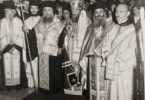


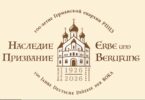

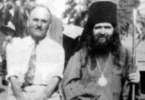
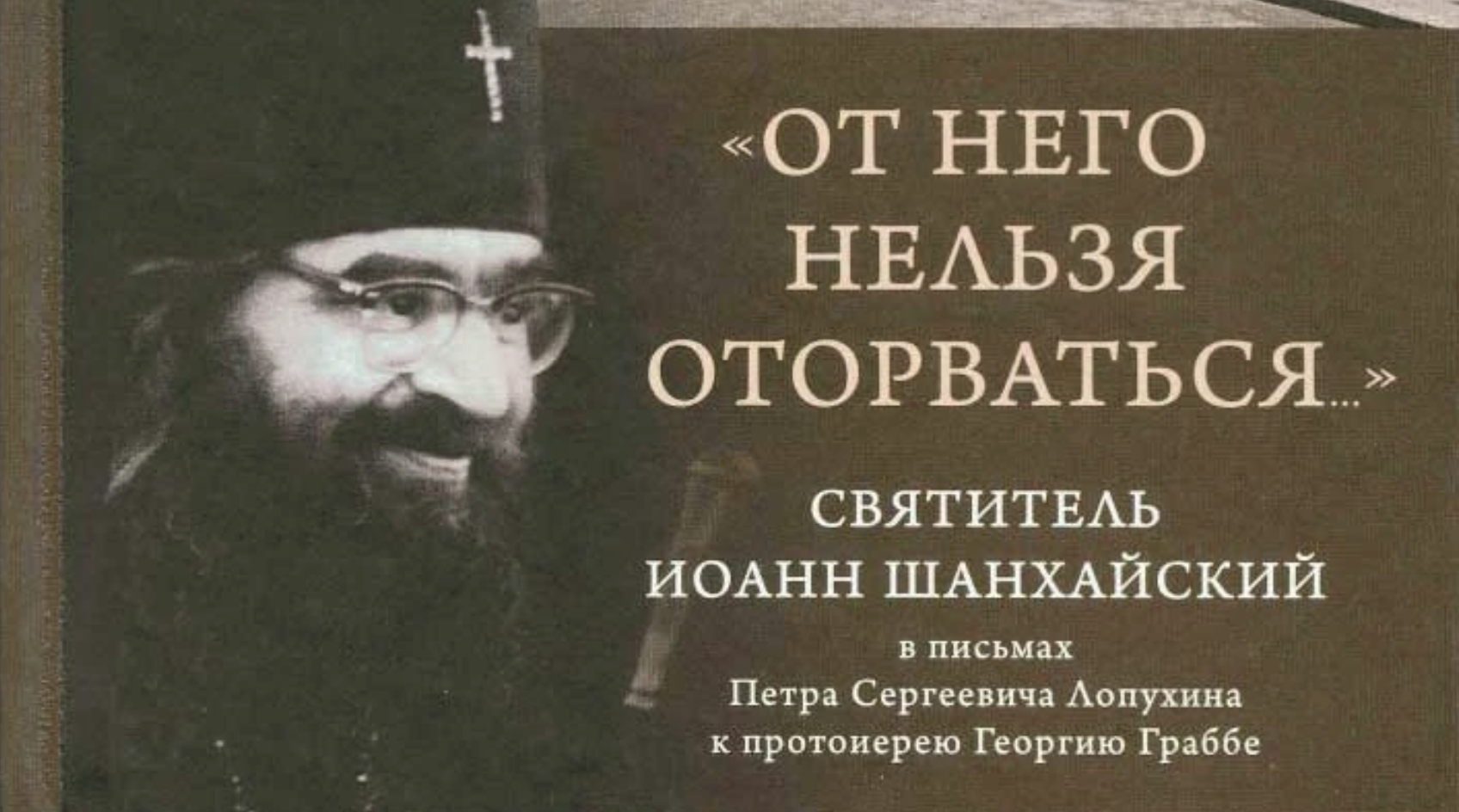

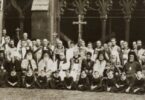
I was very pleased to read the correspondence between V Rodzianko and G Grabbe on your site. Most interesting.
I knew Fr Vladimir Rodzianko very well when he lived in London and used to help in the altar when he served monthly Liturgies in English at the Serbian church. He was a great character and I have many memories.
My general impression is that as he became older (in America) he became more conservative in church matters.
This is a fantastic exchange. Thank you for posting it. There are many important matters that get brought up and it is a pleasure to read the two learned, pious men disagree amiably without losing their principles. I favor Bp. Gregory’s views in the end as they are more intelligent articulations of my own.